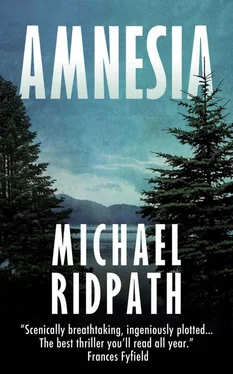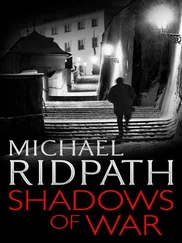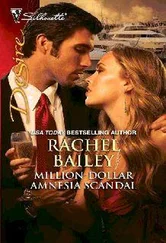He was a bad father. An appalling father. It wasn’t entirely his fault, but he had lost his own children long ago, when he had gone to prison. Fabrice, the eldest, had disappeared entirely for years — contact with him had been minimal. Beatrice, Fabrice’s younger sister, had cut herself off from him, until he had been released. Then she had reintroduced herself. But she was nuts, frankly, and her three children were out of control. She was now in her late fifties and divorced, and who could blame her husband? She lived in Putney somewhere and occasionally took it upon herself to pester her wayward father.
And Rupert, like his older brother, had taken off, but had kept in slightly better touch. Stephen knew Rupert hated him. And he didn’t like Rupert either. So Clémence was the best of the bunch.
Madeleine at least had done what she could to help out her sister’s children, and grandchildren, paying for their education. She could be an interfering old bat, but she had a good heart. Stephen glanced at the photograph on the mantelpiece. Which was lucky: Sophie deserved someone more capable than Stephen to look after her offspring.
Stephen felt his eyes stinging. Angrily, he picked up the paper and forced himself to concentrate on the 2.40 p.m. at Uttoxeter.
The old man returned from his walk to find Clémence in the sitting room, ready to resume the book.
He sat down, apprehensive.
‘All right?’ said Clémence. The old man could tell she, too, was nervous about what she might read.
‘All right.’ The old man nodded.
Clémence opened the book.
Chapter VII
Capri Revisited
The Bay of Naples, June 1947
I was glad to be out of Naples and on to the sea. The city had been utterly devastated by the war. It had been poor in 1939, but it had been bustling, purposeful, joyful even; ramshackle new buildings had mixed with the faded glory of the older city. But the war had reached down from the north, picked up Naples, and shaken it to pieces. And then, in 1944, Vesuvius had erupted, shaking it some more. Now there was rubble, rubbish and dust, dust everywhere. The people were thin, dejected and dangerous: boys tried to take your money, girls tried to sell their bodies. And the city stank of refuse and sewage.
Nowhere was happy or prosperous after the war, but as the train had left France and headed south through Italy, the poverty intensified. Nothing in Europe was untouched, and certainly not me. My sister had died. Joyce had been wandering through the streets of London, on leave with her boyfriend Tommy, when a doodlebug’s engine had cut out high above them. They had run to the precise spot on the Strand where it had landed — both dead.
As for me, I had become a soldier, and a good one. I had been granted a commission, and shipped out to North Africa, where the Green Howards had fought hard and been defeated soundly by the Afrika Korps at Gazala. I had escaped the confusion of battle with two comrades and trekked through the desert back towards Egypt, although one of us, Corporal Binns, hadn’t made it the whole way. Back in the line, more fighting and capture this time. I was one of the last Allied POWs to be evacuated from Africa to a stalag in Germany. After a couple of failed attempts, I had escaped and made my way through France where I had remained holed up in a village in the Massif Central until my hosts were liberated.
From there, back to England, but the war had ended before they could thrust me back into the front line for a third time. Yet for all that toing and froing, for all my efforts, I was pretty sure I hadn’t actually succeeded in killing a German, or an Italian.
All a bit of a waste of time, really.
Escaping from the British Army had taken longer than escaping from a German POW camp, but eventually I had been demobbed, and returned to St Bartholomew’s Hospital Medical College for my final two years. Bart’s in 1946 was totally different from Bart’s in 1939. There were those fellow students who were just out of school who had missed the war, and who had the boisterous enthusiasm for medicine which must have infected me at their age. And then there were those who had served in one way or another in the armed forces, but even these were younger than me, for I was now in my thirties. Most of my direct contemporaries from pre-war Bart’s had been rushed into becoming field medics. Two others had become pilots, both killed. One had joined the navy and was somewhere at the bottom of the Barents Sea.
I still found medicine interesting, I was good at it, and I had taken up rugger again. But I was a different person, there was no doubt of that.
I had received a letter from Nathan asking me to meet him and Madeleine at Tony’s house on Capri. Stephen and Sophie would be there, as would Elaine, who was now Tony’s wife. I had not seen Stephen since that afternoon in 1939 when I had fled the island, or at least not seen him in the flesh. I had watched him several times on the cinema screen, for his acting career had indeed taken off and he had performed and eventually starred in at least a dozen British films during the war. He had been working hard. He had also married Sophie, in April 1940 at Holy Trinity Brompton in London. They had invited me, but I had politely and curtly refused.
This was the first time that Nathan had visited Europe since the war: he had extended business commitments, but wanted to meet his old friends as well. Capri seemed to him the place to do it.
God knows why. I wasted no time in refusing. They wouldn’t miss me.
But Nathan didn’t take no for an answer, and he had written a follow-up letter which I had been unable to ignore; in fact I had kept it in the breast pocket of my jacket on the long journey from London.
Dear Angus,
I was disappointed to receive your refusal to join us in Capri this summer, much more disappointed than I expected. Let me explain why.
The war has destroyed so much. Buildings, lives, families, nations. I was fortunate, I have worked damned hard but I avoided serving in the armed forces, for which, I admit, I feel guilty. My younger brother Bobby died at Okinawa. Out of the historians in our year at college, Wardle and Henderson were killed, and Thurston was badly burned. I lost a couple of good friends from Yale. Madeleine’s village in France was one of those the Nazis decided to use as an example — thirty inhabitants were executed as a reprisal for resistance sabotage. I’m sure you saw suffering too.
Yet some things remain. Friendship. Love. Family. You and I were good friends before the war, as you were with Stephen. My marriage to Madeleine was easily the best thing that has happened in my life, and Tony and Elaine are very happy. So you can understand why I want to get us all together in Capri again.
And I want you there, we all want you there. Madeleine, Sophie, Stephen, even Tony, who says you were the only person apart from Alden who ever took his art seriously!
I realize that you were badly hurt by Stephen and Sophie falling in love on Capri — as you can imagine, it is something we have discussed at length together. They understand why you didn’t come to their wedding in 1940, and in fact I understand why you don’t want to come to Capri now.
But I hope you will; we hope you will. Because friendship should be stronger and more long-lasting than this darned war. You are important to all of us. So please come, damn it!
By the way, I have subsequently learned about England’s harsh foreign-exchange restrictions for travelers. Please don’t worry about that, I will cover everything. There is money in oil; too much money.
Yours ever,
Nathan
Nathan was right, Nathan was absolutely right, and I was looking forward to seeing him.
Читать дальше












